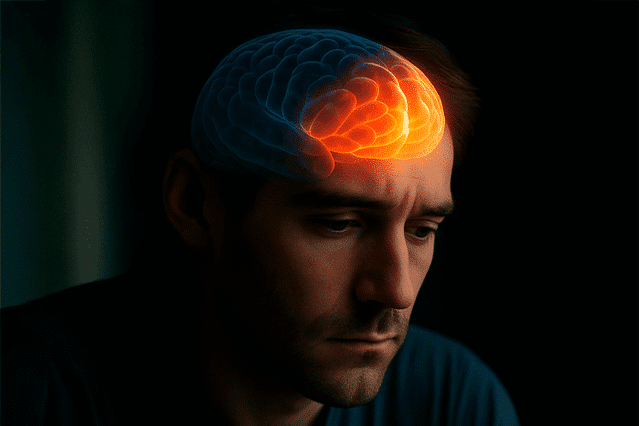A traumatic brain injury is more than just a physical blow to the head. It can quietly alter the very core of who a person is. After a concussion, a fall, or a car accident, the immediate concerns are often visible injuries or memory problems. But what many people do not realize is that traumatic brain injuries can have a powerful and lasting impact on mental health and personality.
These changes can be subtle at first, a short temper, trouble sleeping, or increased anxiety—but over time, they can reshape how someone feels, thinks, and connects with others. Understanding this emotional aftermath is key to supporting recovery and compassionately navigating life after a brain injury.
The Brain’s Role in Regulating Emotions
The brain is responsible for everything we feel, from love and joy to fear and frustration. When parts of the brain like the frontal lobe, limbic system, or temporal lobes, are injured, the brain’s ability to regulate mood and behavior can be thrown off balance. A person who was once calm, friendly, and confident might now experience sudden anger, emotional numbness, or episodes of deep sadness.
These shifts are not a choice. They are the result of damaged brain pathways that once kept emotions in check. Many survivors feel a loss of control over how they react. They may cry unexpectedly, become easily overwhelmed, or lash out in anger. Others may withdraw entirely, feeling detached from loved ones or uninterested in things they once enjoyed.
Anxiety and Depression After TBI
Depression is one of the most common mental health issues following a traumatic brain injury. It can be triggered by the injury itself or by the stress of adjusting to a new way of life. Imagine waking up one day and finding it difficult to concentrate, remember things, or control your emotions. That sense of loss can weigh heavily on the mind and lead to feelings of hopelessness.
Anxiety is another frequent companion. Survivors may feel nervous in situations that never bothered them before, like crowded rooms or unfamiliar places. Some live in fear of having another injury. Others feel anxious about work, relationships, or simply keeping their emotions in check.
These emotional shifts are not always easily recognized. Friends or family might assume the person is just being difficult or distant. In reality, their brain is working overtime to manage tasks that once came naturally.
Changes in Personality and Social Interaction
For many, personality changes after a brain injury are some of the most confusing and painful symptoms to experience. A person who was once easygoing may now be irritable or impulsive. Someone who was once outgoing may become withdrawn and distant.
These changes can affect relationships, careers, and self-esteem. Loved ones may feel like they are living with a stranger, and survivors often struggle with guilt or confusion about who they have become. It can feel like grief, grieving the version of themselves they remember but can no longer access.
In some cases, these personality changes may soften over time as the brain heals and adapts. But healing does not always mean returning to exactly who someone was before. It may mean learning new coping tools, adjusting expectations, and building a new sense of self.
Finding the Right Support
The emotional and psychological impacts of brain injury deserve just as much attention as the physical ones. Therapy, especially when trauma-informed or neurologically focused, can help individuals regain emotional balance. Support groups and mental health professionals can guide survivors and families through the storm of emotional changes.
Recovery is not a straight line. There will be progress and setbacks. But with patience, support, and the right tools, it is possible to find a new rhythm, a new version of life that includes healing, understanding, and connection.
A traumatic brain injury might change the brain, but it does not erase the person. With time and care, people can continue to grow, rediscover their strengths, and feel like themselves again—even if that self looks a little different. Facebook


